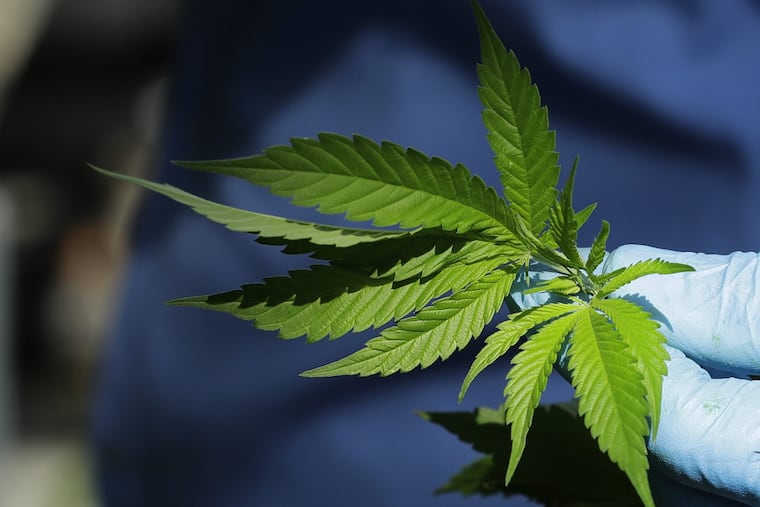Could Pa.’s marijuana program be in peril again? Permit scoring had ‘errors’ and ‘irregularities’
An examiner's opinion may open the door to more challenges and appeals by denied applicants. It may also explain why dispensary permits for Phase 2 of the marijuana program have been delayed for weeks.

It's more than sour grapes.
A company that lost its bid to operate medical marijuana dispensaries in Pennsylvania may get a second chance. That's after a state-appointed attorney investigated the application process and found "significant errors," "several irregularities," and outright violations in the way the company's applications for permits in Lehigh and Northampton Counties were scored.
Keystone ReLeaf filed a lawsuit last year after it narrowly failed to secure two of the state's 27 potentially lucrative permits to run cannabis shops.
The Bethlehem-based company claimed that the Department of Health, which governs the medical marijuana program, failed to provide adequate training to its anonymous application scorers; to provide adequate time for the scorers to review the 457 applications; and to establish scoring standards.
This week, a court hearing examiner agreed with Keystone ReLeaf and ordered the re-scoring of the company's applications.
The opinion only pertains to Keystone Releaf. But the document — written by chief hearing examiner Jackie Wiest Lutz — may open the door to additional challenges and appeals by denied applicants. Its release may also explain why dispensary permits for Phase 2 of the marijuana program have been delayed for weeks.
The opinion identifies two of the secret scorers, and it excoriates them by name.
Art McNulty, a policy specialist for the state Department of Community and Economic Development, was one of a handful of panelists who scored the Community Impact section of the application. That section was worth 100 points, or 10 percent of the total.
The examiner found that McNulty used arbitrary standards and criteria not found in the regulations. For instance, applicants were required to state whether they had at least $150,000 in capital. But if the applicant listed only that amount, McNulty issued a failing score. Keystone ReLeaf had $6.9 million on deposit, 46 times the requirement, but McNulty gave the company a low score because the money was "not as 'liquid' as McNulty would like to see."
DeShawn Lewis, the state director for diversity and inclusion and small business opportunities, was the only person who was supposed to score the Diversity portion of the application. That section was also worth 100 points. (Pennsylvania is the only state that has a medical marijuana program that gives such weight to community impact and diversity.)
The Department of Health required that the applications be kept confidential. But Lewis made copies for her staff to review, in violation of the regulations, and then discussed them with her underlings. In addition, the examiner found that Lewis "did not use the standardized scoring rubric," and made up her own criteria as she went along.
Lewis reportedly told the examiner that even if a marijuana company was 100 percent minority-owned, it would not garner a perfect score for diversity.
The examiner, who interviewed Lewis and other scoring panelists, said Lewis' testimony was "not particularly trustworthy" because she ignored the training she received, used the opinions of untrained employees to score the applications, and disregarded the confidentiality requirement.
The opinion also asked whether panelists had adequate time to review the applications. "The sheer volume … was extremely massive," the opinion states. The Department of Health received more than 450 applications. Each application had about 1,000 pages. Each panelist was required to review up to 25 applications a week. "People are human, and people become fatigued," Lutz wrote. "Given the vast number of pages… scoring errors were likely made."
The opinion will be reviewed by the Department of Health's deputy secretary, Ray Barishansky, who will decide whether they will act on it.
"We have the option to demonstrate why we think the report was wrong and the conclusions not based in law," said department spokesperson April Hutcheson. "While the department continues to evaluate its options, it's important for patients to know that our medical marijuana program will continue to provide them with safe and effective medication."
For more news about medical marijuana and recreational cannabis, visit Philly.com/cannabis
" format="normal" /]
A state official has ordered the rescoring of a rejected applicant for a marijuana business